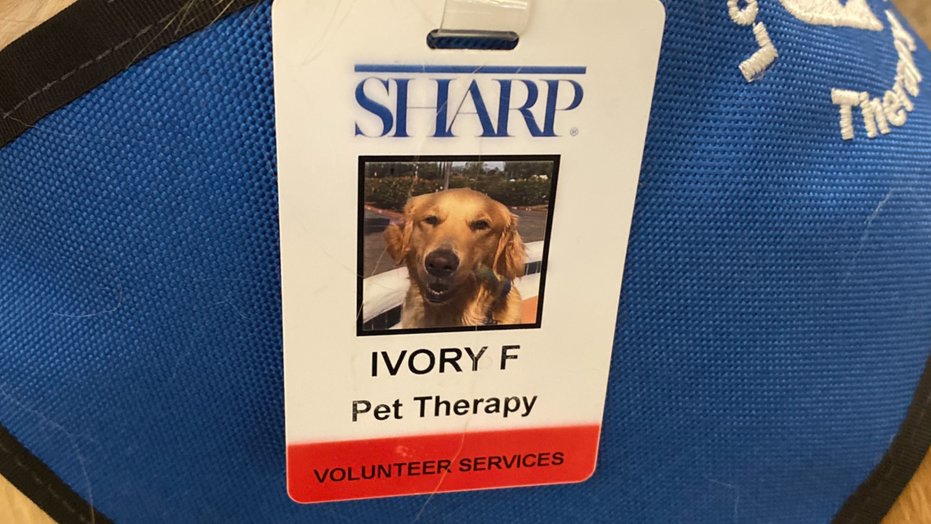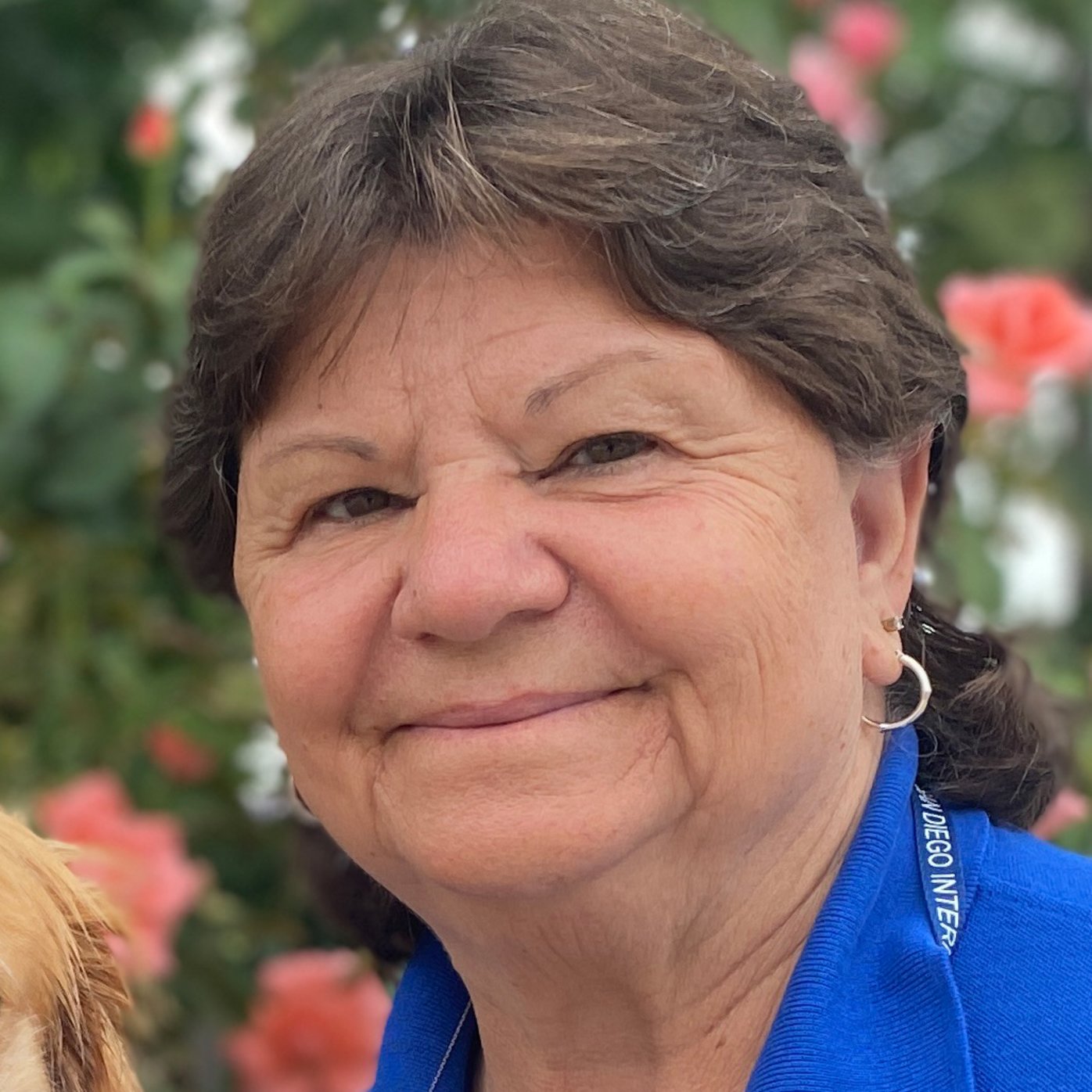
How to find the right therapist
Thinking about therapy? Finding the right therapist is an important first step.
Just like the people in their lives, some dogs have a calling to do special things. Some are fierce guardians of families and flocks, while others work with law enforcement to help root out the bad guys.
In a category all their own, there are also therapy dogs, trained to calmly comfort and lift the spirits of people in a variety of places, from schools and nursing homes to airports and hospitals. Different from service or emotional support animals, certified therapy pets — which also include rabbits and cats — are privately owned animals whose role in the world is to brighten the day of the people they visit.
So, you may be asking, does my sweet-tempered, lovable pup have what it takes?
Acing the job interview
While entry level applicants are more than welcome, interested canines must go through a screening process to determine if they’re a good fit for the job. Sue Subkow is the San Diego Central Chapter founder of Love on a Leash, a 501(c)(3) volunteer organization that provides an accessible certification process for dogs and their owners to become therapy pet and handler teams.
“It’s one of the most rewarding things you can do with your dog,” says Subkow. “Walking into a situation where others need cheering up, and knowing when you leave that you brought somebody kindness and compassion is worth the work and effort you put into it.”
The certification process goes like this:
Control evaluation — Your pet must be evaluated for temperament and obedience by a certified animal behaviorist, certified dog trainer, certified obedience instructor or an evaluator approved by the American Kennel Club (AKC). Dogs must know basic commands, such as sit, lie down, come and heel, and be able to perform them with people close by.
Supervised visits — Once your dog passes the control evaluation, the next step is on-the-job training. This important component requires dogs and handlers to complete a minimum of 10 one-hour supervised visits, paired with an experienced team, at a hospital or other facility to see how the dog — and handler — do in real-life situations.
Evaluation — The evaluation form is completed by the person who supervised at least five of your 10 training hours, including your final visit.
Application — Teams in training have one year from their control evaluation date to complete all supervised visits and submit their membership applications.
The right dog for the job
As we all know, it’s important to find the right fit for ourselves in the working world. Therapy dogs are the same. There are mellow dogs, and those that are more active. However, dogs who may not excel in one setting may do just fine in another.
“Just because a dog may not be a good fit for a hospital doesn’t mean they can’t be a good therapy dog somewhere else,” says Subkow. “An energetic dog would do well with a military or law enforcement visit or visiting college students the week before finals.”
Sometimes surprises happen too, which can be remedied with training. Subkow laughed as she recalled the story of a very “fetching” retriever who visited a nursing home, spotted a walker with tennis balls on the feet and got very excited, to say the least. Most dogs, however, can be trained to work out any kinks.
Happy to be paid in pets and pats
Marilyn Fullen has been a volunteer at Sharp Grossmont Hospital for eight years, with her sweet dog, Ivory, as her current sidekick. Both are alumni of Love On A Leash. Before Ivory, Marilyn’s partner in pats was Brutus, who changed his “career” from working with Canine Companions, a service dog organization, to becoming a therapy pet, which suited him very well, thanks to his calm Labrador demeanor.
“He was such a good dog, and he was perfect as a therapy pet, so that’s why I started volunteering,” says Fullen. She had worked as a physical therapy assistant prior to volunteering, so she was also comfortable in a health care setting.
Ivory, too, had to pivot and make a career change. Just like Brutus, she started training with Canine Companions but was released because of a medical issue. However, being a stay-at-home dog was not in Ivory’s DNA.
“She was trained for service, and she needed a job,” says Fullen. “I knew she would love therapy work.”
Ivory, age 6, sports a permanent smile on her face, and a personality fit to brighten spirits. As she makes her rounds throughout the hospital, the effect she has on staff — who are quick to take a timeout to give her hugs — as well as visitors and patients is clear.

As beloved members of Sharp's volunteer team, therapy pets get an official hospital badge.
“Seeing what a difference these dogs make in a patient’s or client’s day, and in their life as a whole, it’s so worth putting the work into getting your dog certified,” says Fullen. “For Ivory, it gives her the opportunity to do what she loves best: to love on people and have them love on her.”
Just like any working woman, Ivory enjoys her downtime too. As a retriever, her favorite sport is swimming in the pool and at the beach. She also enjoys her walks and trips to the park but, says Fullen, keeping the couch warm seems to be Ivory’s favorite pastime on her days off.
Tips from a pro
Fullen has some important advice for anyone considering having their pet certified. First things first, of course, be sure you’ve completed solid obedience and socialization training with your dog to set them up for success in the environments where they’ll be working. Working with a professional trainer can help you achieve that goal.
She cautions people to not rush the training process, either. Some dogs take more time than others to learn and to mature. But most importantly, be certain both of you agree to the plan.
“Make sure it’s what your dog loves to do,” says Fullen. “You might want to volunteer, but not all dogs want to be therapy dogs, even if they are lovable and friendly with their families.”
It takes a special dog — and person — to be a successful pet therapy team, Fullen says. But when you decide you have that right chemistry and the dog is on board, she guarantees it will be “one of the most rewarding things you’ll ever do.”
Learn more about therapy pets; get the latest health and wellness news, trends and patient stories from Sharp Health News; and subscribe to our weekly newsletter by clicking the "Sign up" link below.

The Sharp Health News Team are content authors who write and produce stories about Sharp HealthCare and its hospitals, clinics, medical groups and health plan.

Marilyn Fullen is a volunteer at Sharp Grossmont Hospital.
Our weekly email brings you the latest health tips, recipes and stories.